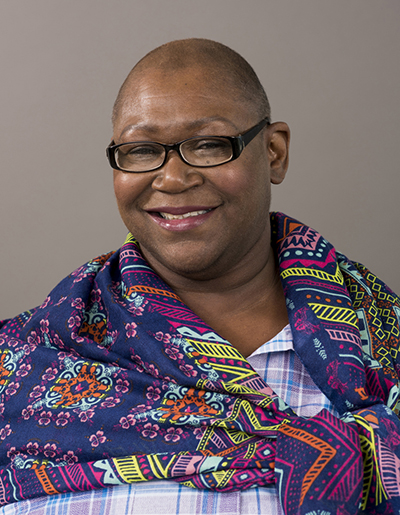 “You have to go through it to get through it.” That’s how Camilla Clark describes the way she dealt with breast cancer. In 2016, when she was diagnosed following a mammogram and biopsy, she was numb. “I still don’t feel anything about it,” she says.
“You have to go through it to get through it.” That’s how Camilla Clark describes the way she dealt with breast cancer. In 2016, when she was diagnosed following a mammogram and biopsy, she was numb. “I still don’t feel anything about it,” she says.
Even so, when Freda White, a fellow cancer survivor and support group member, walks by, the women pause for a hug and a few words of comfort. “Freda and I have a special bond,” Camilla explains. “I don’t talk a lot, but she brings it out of me. It’s a comfort to go through this with someone who understands.”
“This” is a lumpectomy of her right breast, four months of chemotherapy and six weeks of radiation. Going through it with the professionals at Lyndon B. Johnson Hospital and Smith Clinic helped, she says.
“The logistics of dealing with cancer can be overwhelming. Treatment is my priority. I take care of myself and stay away from stressful situations. Anything that doesn’t relate to caring for my cancer, I let others handle. That’s hard if you’re an independent person.”
Camilla says she doesn’t let cancer get her down, then wonders if that’s true. She doesn’t rest well and thinks of her future as unpredictable. “Personally, I think I’m in denial.”
She tries to take life day by day. Camilla learned that when she was overcoming addiction, and it worked. She’s 26 years clean and sober.
“Dealing with addiction was much harder than cancer. It’s a good feeling to look at addiction in the rear-view mirror. I started looking at cancer in the rear view as soon as my surgery was over.
“I don’t take anything for granted. I used to be a procrastinator, but I don’t procrastinate anymore. Treatment taught me that lesson.” The women in her support group have shared other lessons. One thing, for example: “You have to stop and look back to think about where you need to go.”
Camilla also learned she’s ready to make a career move. Before her diagnosis, she provided home health care. Now she’s going back to school to become a chemical dependency counselor. Like the women in her support group, she understands the importance of sharing her wisdom.